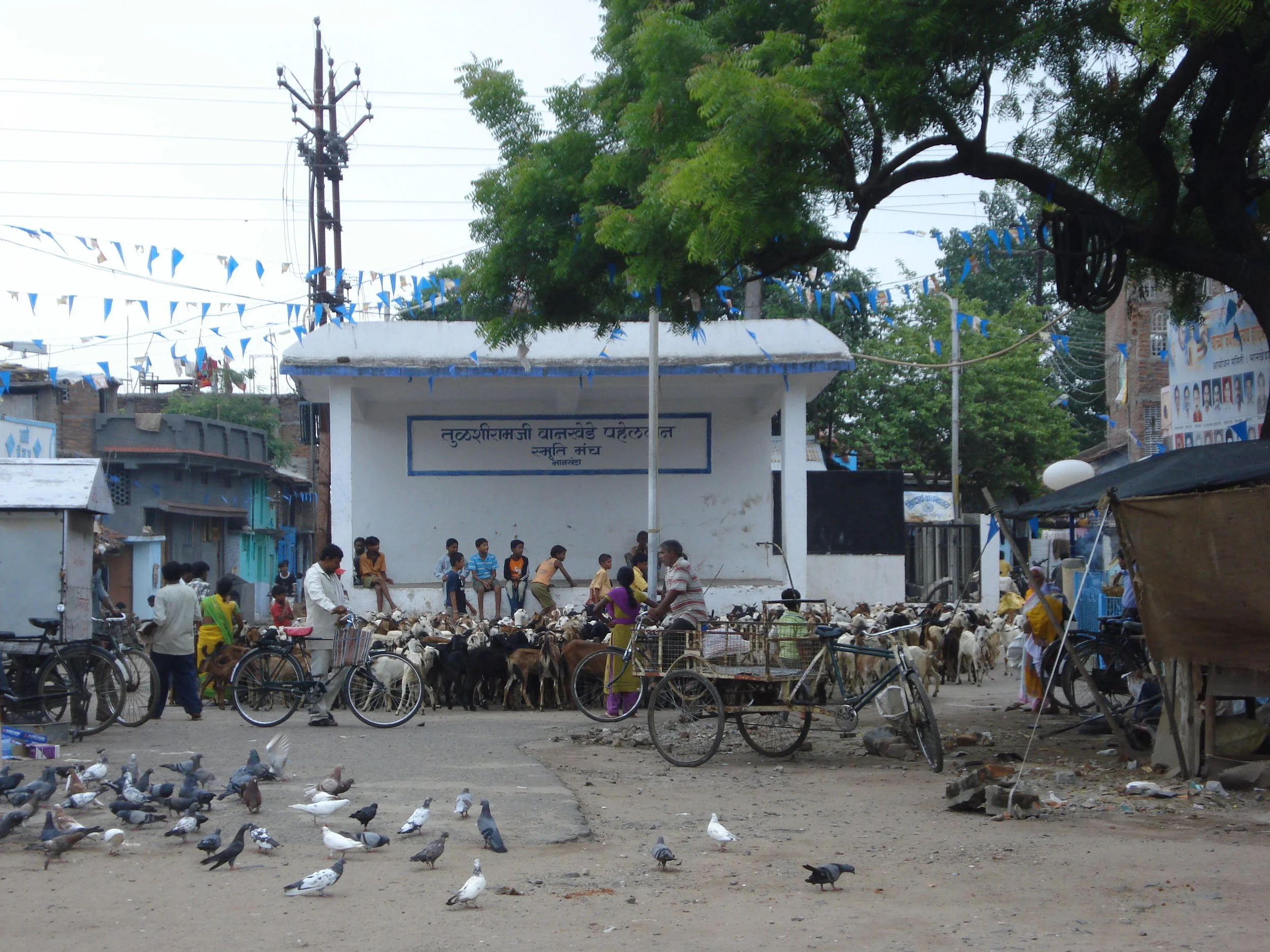The Black Atlantic Ecologies group supports and elaborates scholarship that centers the enduring effects of coloniality and the dynamic power of protest in African diasporic confrontations with environmental crisis. This group poses a single central question: How might Black Atlantic experience with peril, with perishment and with premature death offer a rubric for thinking futurity, including reproductive futurity, in a moment of environmental collapse?
Environmental Justice, Belief Systems, and Aesthetic Experiences in Latin America and the Caribbean
In response to the increasing power of the evangelical right in Latin America and the Caribbean, this project traces renewed interest in traditional and indigenous belief systems that have fueled struggles for environmental justice. These struggles rely on expressive and aesthetic forms such as ritual, song, and performance. These forms, in turn, give shape to new modes of imagining environmental justice. This comparative project is undertaken by a working group of scholars, artists and activists from Columbia University in collaboration with colleagues from Argentina, Brazil, Colombia, Cuba and Puerto Rico.
Women’s Heart Disease Awareness: Digital Intervention, Creating Change
Cardiovascular disease (CVD) is the leading cause of mortality for women in the United States, accounting for more deaths than breast cancer, cervical cancer, and Alzheimer’s disease combined, yet awareness of risk factors for CVD in women is extremely low and underprioritized. This group looks at big questions about what motivates women to make tangible changes to their health behaviors, and how to get people in health care policy, research funding, and the media more invested in women’s health issues.
Data Algorithms and Social Justice
The “Data, Algorithms, and Social Justice” working group catalyzes interdisciplinary dialogues and research into urgent contemporary issues around artificial intelligence, automated decision-making, power, and social change. In the twenty-first century, conceptions of social difference are shifting rapidly in response to the increasing influence of algorithms and automated decision-making processes, with profound impacts on employment, medical care, criminal justice, government services, and more. To effectively intervene in the injustices posed by our data-driven world will require new approaches and analytical tools, combining the critical lenses of the humanities with the skills of data scientists, programmers, statisticians, and more.
Pedagogies of Dignity
Menstrual Health and Gender Justice
The Menstrual Health and Gender Justice working group seeks to further the nascent field of menstrual studies. This group puts particular emphasis on critically evaluating the current state of research, with interest in examining whose voices are being represented in the field, which actors shape the dominant narrative, whose voices are marginalized, what the gaps are, and how interdisciplinary collaboration might help remedy some of these gaps.
On The Frontlines: Nursing Leadership in Pandemics
Racial Capitalism
Since its first usage by antiapartheid activists in South Africa to its elaboration by political theorist, Cedric J. Robinson, racial capitalism is a concept that delineates the interlinked relationships of race and class constitute of global capitalism. The racial capitalism working group is a site of sustained collaborative research and study. Our collective work is rooted in a commitment to Black radicalism, historical materialism, feminism, and anti-imperialism.
Queer Aqui
Queer Aqui is a CSSD working group to discuss, debate and investigate the politics of sexuality and gender in a global frame. This group builds upon a vast network of queer scholars worldwide to consider how best to resituate queer studies to respond to shifts in the meanings of family, sexual health, gendered embodiment, religion, sexual practices, gender variance, activism and sexual communities.
RELIGION AND THE GLOBAL FRAMING OF GENDER VIOLENCE
THE RURAL-URBAN INTERFACE: GENDER AND POVERTY IN GHANA AND KENYA, STATISTICS AND STORIES
GENDER & THE GLOBAL SLUM
Reframing Gendered Violence
Pacific Climate Circuits: Moving Beyond Science, Technology, Engineering, and Economics
Bandung Humanisms
UNPAYABLE DEBT: CAPITAL, VIOLENCE, AND THE NEW GLOBAL ECONOMY
Precision Medicine: Ethics, Politics and Culture
Precision Medicine is an emerging approach for disease treatment and prevention that takes into account individual variability in genes, environment, and lifestyle for each person. Precision Medicine: Ethics, Politics and Culture (2016-19) examines the ethical, legal, and political implications of precision medicine research.
The Digital Black Atlantic
The Digital Black Atlantic Project (2013-16) was a multi-institutional and interdisciplinary working group that came together to invent a scholarly resource and digital platform for multimedia explorations and documentations of literary texts, visual documents, sites, moments, rituals and ceremonies, monuments and memorials, performances, and material objects emerging out of and concerning the Black Atlantic world.
Women Mobilizing Memory
Women Mobilizing Memory (2013-20) explored the politics of memory in the aftermath of the atrocities of the twentieth and twenty-first centuries in comparative global perspective. The international working group analyzed the strategies by which women artists, scholars and activists have succeeded in mobilizing the memory of gender-based violence to promote redress, social justice, and a democratic future.
GENDER, RELIGION AND LAW IN MUSLIM SOCIETIES
Gender, Religion and Law in Muslim Societies studied the unique forms of women’s activism across the Muslim world, looking at how efforts by women to work within an explicitly religious framework in order to transform society and participate more fully in public debates have influenced state. The group explored the divergences and points of contact between the flourishing work of those termed “Islamic feminists” and those who might best be called “Islamist women,” and evaluated the academic research used to promote the social inclusion and wider political transformation of women in the Islamic world.



















